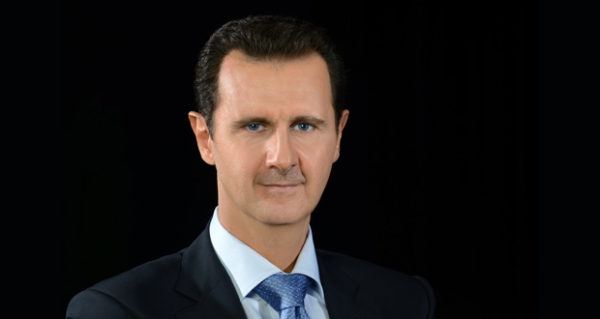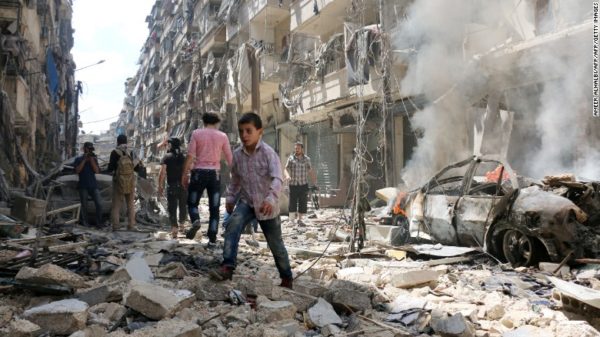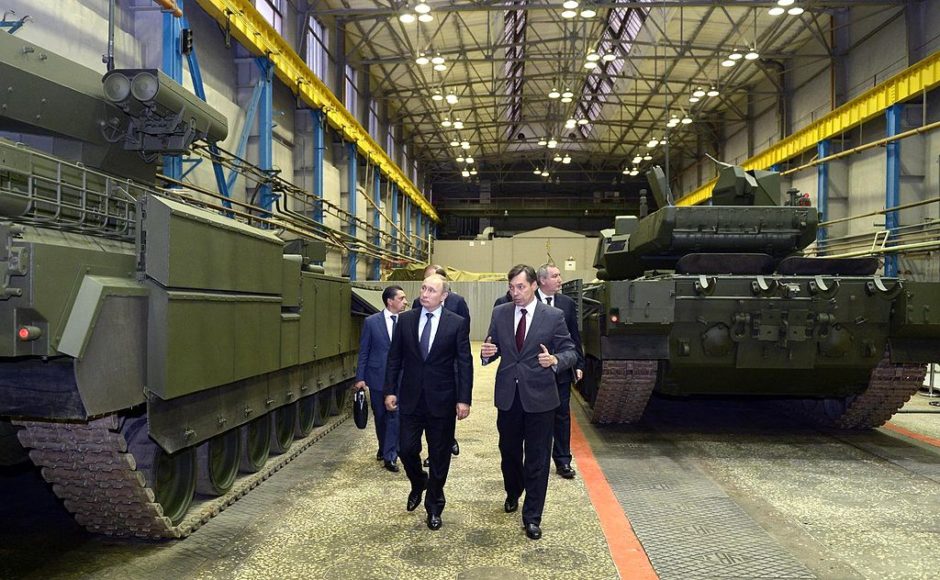Late last month, for the seventh time in six years, Russia vetoed a United Nations Security Council resolution in defence of its ally, Syria, which has been embroiled in a civil war since 2011. The resolution, proposed by France and Britain and supported by the United States, condemned Syria for deploying banned chemical weapons against rebel forces.
We’ve been there before.

Syrian President Hafez al-Assad’s first known deployment of chemical weapons occurred in the summer of 2013, when Syria used sarin gas during an offensive in a Damascus suburb. Outraged by Syria’s flagrant violation of an international treaty banning the use of such weapons of mass destruction, the United States threatened to launch military operations against the Syrian Baathist regime.
Intervening at this fraught point, Russia persuaded the United States to step back from the brink. Russian and American diplomats proceeded to work together to force Syria to dismantle its stockpile of chemical weapons and to sign the treaty outlawing them.

Predictably enough, Syria did not wait long before flouting its solemn treaty obligations.
According to the UN, the Syrian government carried out three chemical weapon attacks in 2014 and 2015, pummelling rebel positions with barrel bombs filled with the banned substance chlorine. As per usual, Russia rallied behind Syria on February 28 when the 15-member UN Security Council voted on the French and British resolution. Russia, joined by China and Bolivia, vetoed it, thereby shielding Syria from sanctions that would have been imposed on some of its officials and entities.
Without cracking a smirk, Russian President Vladimir Putin claimed that sanctions would set back diplomatic efforts to end the civil war, which has claimed the lives of more than 400,000 Syrians. “As for sanctions against the Syrian leadership, I think the move is totally inappropriate now,” he said. “It does not help, would not help the negotiation process. It would only hurt or undermine confidence during the process.”

Putin’s rationalization holds no water.
Russia has always found a flimsy reason, or a lame excuse, to protect Assad’s brutal police state. Hence its decision to veto six previous UN resolutions on Syria, Russia’s closest ally in the Arab world. In effect, Russia has given Syria carte blanche to do whatever it pleases.
The U.S. ambassador to the UN, Nikki Haley, rightly deplored Russia’s policy of protecting the Syrian regime at the expense of its obligation to maintain “global security.” “It is a sad day on the Security Council,” she said following the veto of the resolution. “When (UN) members start making excuses for other member states killing their own people, the world is definitely a more dangerous place.”
Just a day after Haley’s well-founded rebuke of Russia and China, a UN commission of inquiry issued a damning report confirming suspicions that the Syrian Air Force committed a war crime last September by deliberately bombing and strafing a UN aid convoy carrying food, medicine and other humanitarian supplies to the besieged Syrian city of Aleppo. Syrian aircraft dropped barrel bombs laced with chlorine to bomb the convoy, the UN said.
Last December, the UN’s previous secretary-general, Ban Ki-moon, noted that the 31-truck convoy, organized by the UN and the Syrian Arab Red Crescent, had been attacked. But he stopped short of identifying the perpetrator. The most recent UN report its far more conclusive. It proves beyond a reasonable doubt that the Syrian government was directly responsible for the assault, an accusation that Assad brazenly denied.

During the siege of eastern Aleppo, Russian jets joined Syrian aircraft in bombing civilian targets — hospitals, markets, bakeries and water distribution stations — and thereby committed war crimes as well. Russia won’t admit this, but it’s true.
It’s clear that the civil war in Syria has brought out Syria’s and Russia’s worst impulses.
